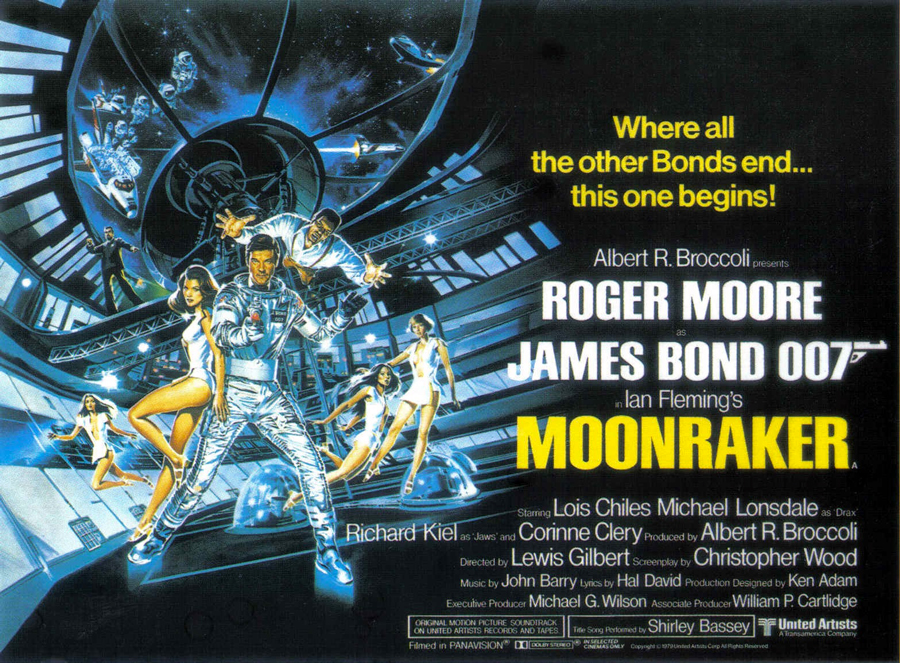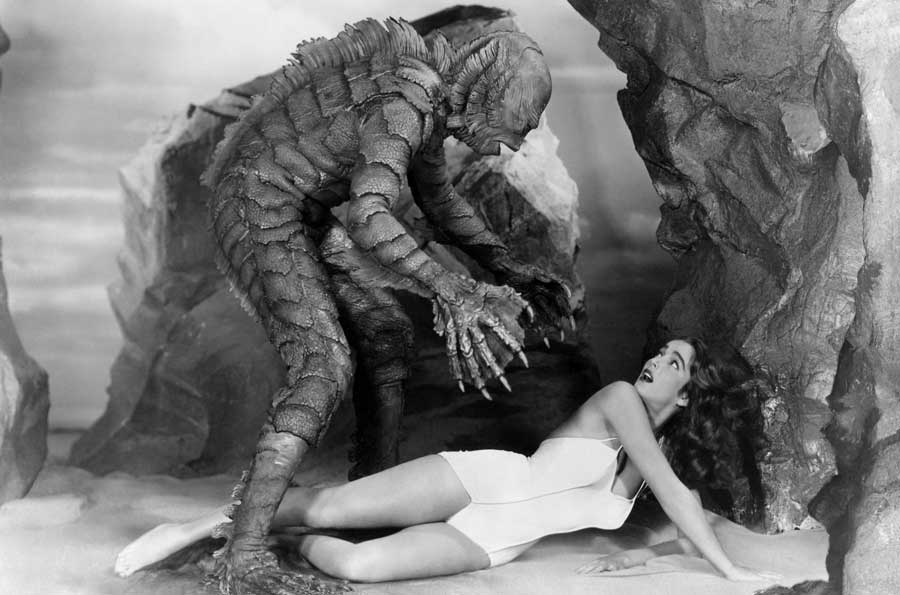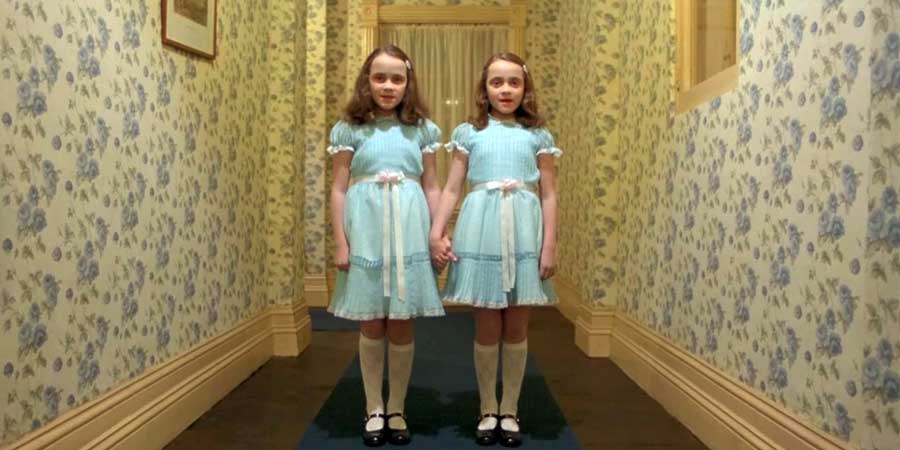by Barry Germansky
This is cinema of control. How can one explain the existence of past, present, and future Nazis? One cannot, at least not at the fundamental level of explanation. How can one bring such vile specimens to justice? One cannot, at least not in any comprehensive sense. So revenge, or something like it, will have to do. Artistic revenge is a kind of justice, one that is certainly preferable to letting the monsters go free. And artistic revenge against Nazis should be pursued at every opportunity. Hitler and his fellow Nazis attempted to destroy all previous knowledge, and so they should have immediately paid the ultimate price (as if such a penalty could ever have been decided upon). Fortunately, at the end of Steven Spielberg’s Raiders of the Lost Ark (1981), a handful of Nazis are punished in a sublimely satisfying way, a revenge that transcends virtually all categories of art, politics, justice, and philosophy. Nazism is forever branded as evil, and this message is conveyed in a way that can reach as many viewers as possible, regardless of their age, language, or education. Viewers can scream, but they can’t look away. If transcendence exists in art, this is where it’s at.







This is a great summary. I feel Tarantino is doing the same with “Inglorious Basterds”, as well as the horrors of American slavery and racism with “Django Unchained” and “The Hateful Eight”.
489560 508959Outstanding read, I recently passed this onto a colleague who has been performing just a little research on that. And the man truly bought me lunch because I came across it for him smile So allow me to rephrase that: Appreciate your lunch! 184431
293174 562253I enjoyed reading your pleasant site. I see you offer priceless information. stumbled into this site by chance but Im sure glad I clicked on that link. You definitely answered all the questions Ive been dying to answer for some time now. Will surely come back for a lot more of this. 62086
721799 765599TeenVogue? Seeking for fashion advice, celebrity buzz or beauty trends? Discover it all in Teen Vogue 814024
10285 969129[…]the time to read or go to the content or websites we have linked to below the[…] 645907
373149 589532You created some 1st rate factors there. I seemed on the internet for the difficulty and located many people will go along with together together with your internet site. 507202
6998 281022I genuinely enjoyed reading this internet site, this is wonderful weblog. 116835
586439 485750Significant other, this outstanding website is fabolous, i merely adore it 831485
Fantastic items from you, man. I have have in mind your stuff prior to and you’re simply extremely excellent.
I actually like what you’ve bought right here, certainly like what you are saying and the best way during which you say
it. You make it enjoyable and you continue to care for to
keep it sensible. I can’t wait to read much more from you.
This is really a terrific website.
Howdy, i read your blog from time to time and i own a similar one and i was
just wondering if you get a lot of spam comments?
If so how do you stop it, any plugin or anything you
can recommend? I get so much lately it’s driving me insane so
any assistance is very much appreciated.
Hello, i feel that i noticed you visited my web site thus i got here
to go back the prefer?.I am attempting to find issues to
improve my website!I suppose its good enough to use a
few of your ideas!!
When I initially commented I clicked the “Notify me when new comments are added” checkbox and now each time a comment is added I get three emails with the same comment. Is there any way you can remove people from that service? Thank you!
excellent points altogether, you simply gained a new reader. What would you recommend about your post that you made a few days ago? Any positive?
My developer is trying to persuade me to move to .net from PHP. I have always disliked the idea because of the expenses. But he’s tryiong none the less. I’ve been using Movable-type on a number of websites for about a year and am concerned about switching to another platform. I have heard very good things about blogengine.net. Is there a way I can transfer all my wordpress content into it? Any help would be greatly appreciated!
I really like your blog.. very nice colors & theme. Did you make this website yourself or did you hire someone to do it for you? Plz reply as I’m looking to design my own blog and would like to find out where u got this from. cheers
Hi there this is somewhat of off topic but I was wanting to know if blogs use WYSIWYG editors or if you have to manually code with HTML. I’m starting a blog soon but have no coding expertise so I wanted to get advice from someone with experience. Any help would be enormously appreciated!
Very well written post. It will be supportive to anyone who utilizes it, including me. Keep up the good work – looking forward to more posts.
I enjoy, cause I discovered exactly what I used to be taking a look for. You’ve ended my 4 day long hunt! God Bless you man. Have a nice day. Bye
Good site! I really love how it is easy on my eyes it is. I am wondering how I could be notified whenever a new post has been made. I have subscribed to your feed which may do the trick? Have a nice day!
What’s Going down i’m new to this, I stumbled upon this I have discovered It absolutely useful and it has helped me out loads. I am hoping to contribute & aid different users like its helped me. Great job.
family activities are very nice to have, it also strengthens the bond among family members..
Can I simply say what a relief to find somebody who truly is aware of what theyre talking about on the internet. You undoubtedly know how you can bring an issue to light and make it important. Extra folks must read this and understand this facet of the story. I cant believe youre no more standard because you positively have the gift.
Wonderful beat ! I would like to apprentice while you amend your site, how could i subscribe for a blog web site? The account helped me a acceptable deal. I had been tiny bit acquainted of this your broadcast provided bright clear concept
Best view i have ever seen !
Best view i have ever seen !
[Hey there!|Hello!|Yo!] I [found|came across|discovered] this [awesome|amazing|fantastic|very high quality] [site|website] for [streaming|watching] ANY popular [tv shows|tv episodes] you want! I [love|adore] it!
The entire pyre gradually catches fire and the flames soon transfer to the body. You may have up to three throws for each flip or you can quit following the first or second throw. You can do it all from your pc in your home.
Just a second to appreciate your self with a good sport in your personal comfy house, and ideally some winnings as well! Even when you aren’t a severe gamer you can’t deny that you don’t perform a game occasionally.
This doesn’t mean that you must sit like a rock, silent and still. The only distinction lies in the type of 5-card poker hand you’re aiming to make to get pots, higher, reduced, or either.
This is a kind of game that entails utilizing five playing cards to arrive up with the best hand. When playing you should remain targeted and perform in the second. The table might be oval, octagonal or rectangular as nicely.
Best view i have ever seen !
One must hold on his pleasure and not show it to others. There is also the chance to make a little cash and earn reward as well whilst you good tune your abilities. And how do you know you are not up against a computer?
Best view i have ever seen !
The online casinos offer free bonus game slot machines that enable the gamblers to win real cash bonus. You have to understand that there are a number of casinos that offer this service on the internet. To know more about it you can read the blogs and reviews written by the casino’s customers or check with the casino’s online casinos that are associated with the slot machine business. A good online casino should be well known for providing the best casinos and bonus games. You should also read the bonus news that is provided to you by the online casinos so that you will be aware with any new update in the bonus game slot machines.
Hi! Do you know if they make any plugins to
safeguard against hackers? I’m kinda paranoid
about losing everything I’ve worked hard on. Any recommendations?
i want to share hot girls with you for free
Dear defactofilmreviews.com administrator, Keep up the good work!
Hello defactofilmreviews.com webmaster, Thanks for the detailed post!
Hi defactofilmreviews.com owner, Great post!
Dear defactofilmreviews.com webmaster, Your posts are always well thought out.
To the defactofilmreviews.com webmaster, You always provide practical solutions and recommendations.
Hi defactofilmreviews.com webmaster, Your posts are always well-referenced and credible.
Hi defactofilmreviews.com owner, Your posts are always a great source of knowledge.
Dear defactofilmreviews.com webmaster, Your posts are always informative and up-to-date.
Hello defactofilmreviews.com admin, Your posts are always a great source of information.
To the defactofilmreviews.com admin, Your posts are always well-received by the community.
To the defactofilmreviews.com webmaster, You always provide clear explanations and definitions.
Hello defactofilmreviews.com administrator, You always provide in-depth analysis and understanding.
Dear defactofilmreviews.com administrator, Thanks for the well written post!
Attractive component to content. I just stumbled upon your weblog and in accession capital to claim that I acquire actually enjoyed
account your blog posts. Any way I will be subscribing on your feeds or even I achievement you
get entry to consistently quickly.
To the defactofilmreviews.com owner, Your posts are always well received by the community.
Hello defactofilmreviews.com webmaster, Your posts are always a great read.
What i don’t understood is actually how you’re not really much more well-liked than you might be right now. You’re so intelligent. You realize thus significantly relating to this subject, produced me personally consider it from a lot of varied angles. Its like men and women aren’t fascinated unless it is one thing to do with Lady gaga! Your own stuffs nice. Always maintain it up!
Fascinating blog! Is your theme custom made or did you download it from somewhere? A theme like yours with a few simple adjustements would really make my blog stand out. Please let me know where you got your theme. Appreciate it
One other thing to point out is that an online business administration training course is designed for learners to be able to easily proceed to bachelors degree programs. The Ninety credit certification meets the other bachelor diploma requirements and when you earn your own associate of arts in BA online, you will possess access to the modern technologies with this field. Some reasons why students need to get their associate degree in business is because they may be interested in this area and want to find the general training necessary in advance of jumping right into a bachelor education program. Thanks alot : ) for the tips you provide as part of your blog.
Hello I am so excited I found your webpage, I really found you by error, while I was researching on Digg for something else, Regardless I am here now and would just like to say thanks for a remarkable post and a all round interesting blog (I also love the theme/design), I don’t have time to go through it all at the moment but I have saved it and also included your RSS feeds, so when I have time I will be back to read a lot more, Please do keep up the excellent job.
Greetings I am so happy I found your website, I really found you by mistake, while I was searching on Aol for something else, Anyways I am here now and would just like to say thanks a lot for a tremendous post and a all round entertaining blog (I also love the theme/design), I don’t have time to browse it all at the minute but I have book-marked it and also added in your RSS feeds, so when I have time I will be back to read more, Please do keep up the excellent work.
You could certainly see your expertise in the work you write. The world hopes for more passionate writers like you who aren’t afraid to say how they believe. Always go after your heart.
I am extremely impressed together with your writing skills as well as with the layout for your blog. Is that this a paid subject or did you modify it your self? Either way stay up the excellent quality writing, it?s uncommon to look a great weblog like this one today..
Write more, thats all I have to say. Literally, it seems as though you relied on the video to make your point. You clearly know what youre talking about, why throw away your intelligence on just posting videos to your blog when you could be giving us something informative to read?
One thing I would really like to say is the fact before getting more pc memory, look at the machine in which it could be installed. If your machine is actually running Windows XP, for instance, the particular memory threshold is 3.25GB. Adding a lot more than this would just constitute just a waste. Make certain that one’s mother board can handle the particular upgrade volume, as well. Thanks for your blog post.
We stumbled over here from a different page and thought I might check things out. I like what I see so i am just following you. Look forward to going over your web page yet again.
I’m really inspired with your writing skills and also with the format in your blog. Is this a paid theme or did you customize it your self? Anyway keep up the excellent quality writing, it is uncommon to see a nice blog like this one nowadays..
As I web site possessor I believe the content matter here is rattling excellent , appreciate it for your hard work. You should keep it up forever! Best of luck.
To the defactofilmreviews.com webmaster, Well done!
Its like you read my mind! You seem to grasp a lot about this, like you wrote the book in it or something. I feel that you could do with some percent to force the message home a little bit, however instead of that, this is fantastic blog. A fantastic read. I’ll certainly be back.
Hmm is anyone else encountering problems with the images on this blog loading? I’m trying to figure out if its a problem on my end or if it’s the blog. Any feed-back would be greatly appreciated.
Thanks for your writing. I would also like to say that your health insurance brokerage service also works for the benefit of the actual coordinators of the group insurance plan. The health insurance professional is given a summary of benefits looked for by an individual or a group coordinator. What a broker will is try to find individuals or perhaps coordinators which usually best match up those requirements. Then he provides his recommendations and if each party agree, the actual broker formulates an agreement between the two parties.
Another important area is that if you are an older person, travel insurance regarding pensioners is something you must really think about. The older you are, a lot more at risk you happen to be for getting something awful happen to you while overseas. If you are not covered by quite a few comprehensive insurance coverage, you could have some serious troubles. Thanks for revealing your good tips on this web site.
Thanks for your article. Another item is that being a photographer includes not only problems in catching award-winning photographs but hardships in acquiring the best digital camera suited to your requirements and most especially hardships in maintaining the quality of your camera. That is very correct and obvious for those photography fans that are into capturing the actual nature’s captivating scenes – the mountains, the particular forests, the particular wild and the seas. Going to these exciting places undoubtedly requires a digicam that can surpass the wild’s tough areas.
very good